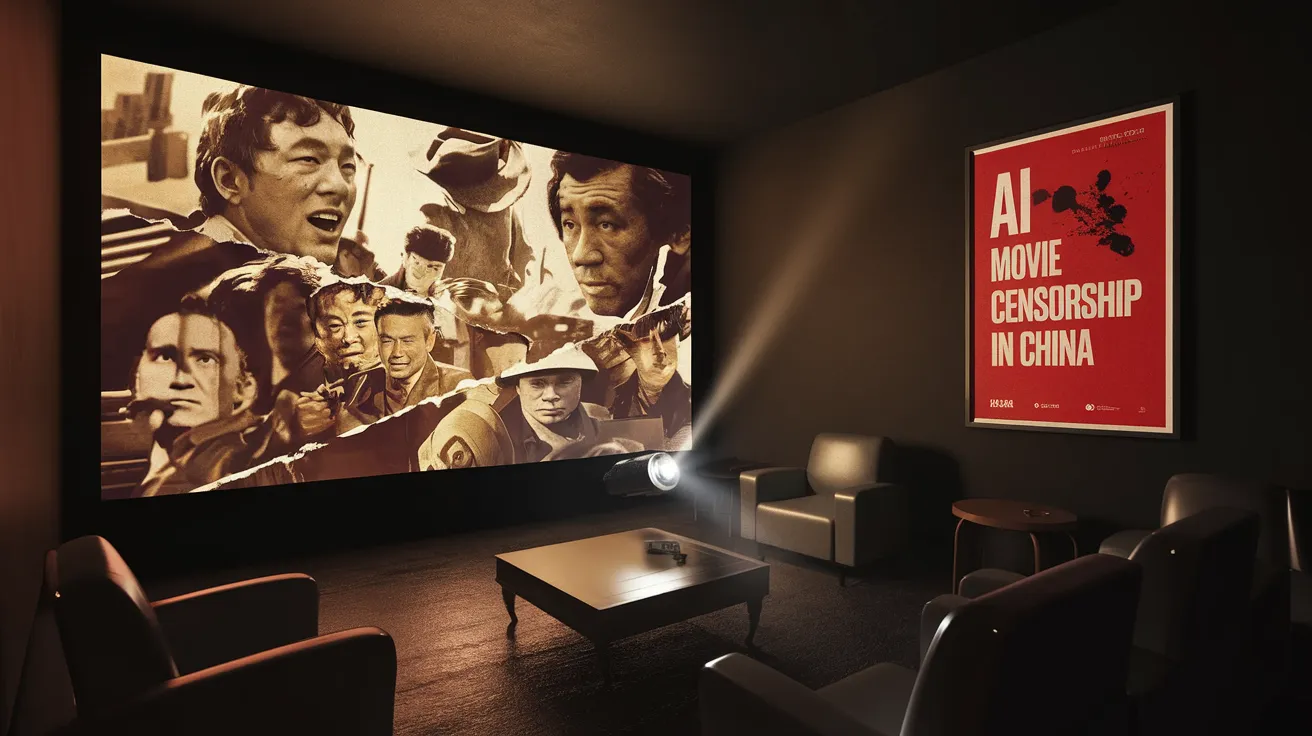AI Movie Censorship in China

HONG KONG — A U.S. film distributor has criticized a Chinese studio for reportedly using artificial intelligence to alter a gay couple to a heterosexual couple in the body-horror film “Together.” In this instance, early moviegoers who attended preview screenings noted that one of the two men shown getting married in the film had been digitally transformed into a woman, presumably through AI technology.
Neon, the global distributor for the film, publicly objected to this unauthorized edit, asserting that screenings featuring this modified version, made by the Chengdu-based film distributor Hishow, must cease. The controversy surrounding the film unfolded rapidly, culminating in Neon’s official statement earlier this week.
Directed by Australian filmmaker Michael Shanks, “Together” follows a couple, portrayed by American actors Alison Brie and Dave Franco, who relocate to the countryside to rejuvenate their relationship while confronting a mysterious force that draws them closer. Initially, Hishow unveiled prerelease screenings in 11 Chinese cities on September 12, with a nationwide release set for September 19.
Viewer reactions on social media were predominantly critical, with many expressing outrage over the manipulation of the same-sex wedding scene. One user on Xiaohongshu, a localized platform akin to Instagram, labeled the alteration as “outrageous,” illustrating the controversy surrounding LGBTQ representation in Chinese media. They remarked on how the edited scene had not been entirely removed but instead made reasonable adjustments that might even impress American conservatives.
The China Film Group Corp., which oversees film distribution in the country, recently announced that the wide release of “Together” has been postponed but did not provide specifics regarding the adjustment. They stated that a new date will be disclosed once confirmed.
Historically, while imported films have undergone censorship to remove sensitive topics, the digital alteration of a scene through AI represents a new shift in censorship strategies. Homosexuality remains a significant point of contention within Chinese censorship, even after its decriminalization, as recent years have seen a heightened government crackdown against LGBTQ content. Public opinions appear to contrast these regulatory stances, with surveys indicating growing acceptance among the populace.
Concerns raised by experts like Jason Coe, a film studies lecturer at the University of Hong Kong, highlight that such alterations depict a clear governmental stance, emphasizing a red line on representation. Concurrently, Zeng Hong, an assistant professor at Hong Kong Baptist University, warned that the use of AI in editing “Together” does not bode well for LGBTQ rights and representation in Chinese cinema.
This instance is not isolated, as artificial intelligence has previously been utilized in Asia to modify film endings. A notable case involved the 2013 Bollywood drama “Raanjhanaa,” which was re-released in India with an AI-modified ending, sparking discussions about storytelling integrity and the role of technology in creative processes.
In an era where technology intersects with narrative expressions, the manipulation of films like “Together” raises critical questions about artistry, consent, and the ongoing struggle for LGBTQ representation in various cultures, especially under state-regulated environments.